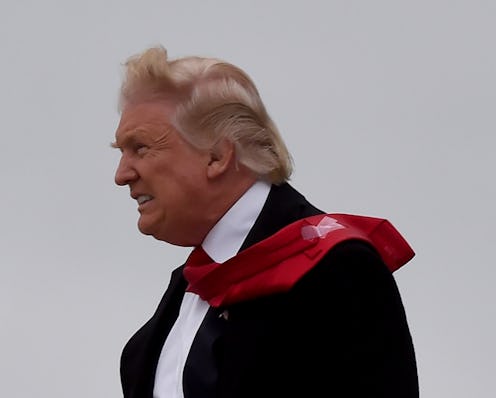News
Faithless Electors Have Yet To Band Together
On Monday, Republican elector Christopher Suprun of Texas announced via an op-ed in The New York Times that he won’t cast his vote for Donald Trump when the Electoral College meets on Dec. 19. This means he’ll be a faithless elector — one who votes for somebody other than the candidate to whom he or she is pledged to vote. Naturally, this raises the question of how many other faithless electors there will be besides Suprun.
“Mr. Trump lacks the foreign policy experience and demeanor needed to be commander in chief,” Suprun wrote in his op-ed. “Fifteen years ago, I swore an oath to defend my country and Constitution against all enemies, foreign and domestic. On Dec. 19, I will do it again.”
How many others will follow in Suprun’s footsteps? As far as Republican electors go, he could be the lone defector. It’s true that one other GOP elector has announced his intent not to vote for Trump. But that elector, Art Sisneros, opted instead to resign from the Electoral College entirely, so he won’t be a faithless elector (or indeed, any kind of elector). Aside from him and Suprun, no other Republican electors have gone on the record saying that they won’t vote for Trump.
However, a group of Democratic electors from Colorado and Washington are trying to change that. They’re currently mounting a campaign to convince as many of their Republican counterparts as they can to vote for someone other than Trump.
There are two interesting details here. First, these “Hamilton electors,” as they’re calling themselves, aren’t trying to deliver the White House to Hillary Clinton. Their primary goal, as stated on their website, is to deprive Trump of the 270 electoral votes needed to win the presidency. If no candidate wins 270 electoral votes, the House of Representatives chooses the next president, and Hamilton electors hope that if this situation arises, the House will choose someone other than Trump.
But who? This is where things get interesting: The group is promoting Ohio Governor John Kasich as an alternative. The hope is that if enough electors vote for Kasich, and Trump falls short of 270 electoral votes, the House will install Kasich as president instead.
“Many Electors are saying that Gov. John Kasich would be best for our country,” Hamilton elector Micheal Baca told Politico on Sunday. “A consensus is beginning to form that Gov. Kasich would be best positioned to unite America.”
The second odd nuance to this is that the Hamilton group is also trying to persuade Democratic electors to become faithless, and vote for Kasich (or another Republican alternative) instead of Clinton. So far, they say, eight Democratic electors have pledged to do so.
This is a bit counterintuitive, but the logic seems to be that if enough Democratic electors go on the record saying they’ll vote for Kasich, this will convince more Republican electors to follow suit. Furthermore, while the likelihood of the GOP-controlled House installing Clinton is probably non-existent, it’s at least conceivable that the chamber could vote for Kasich in the event of nobody reaching an electoral college majority. Having more electors vote for Kasich, in theory, makes it more likely that the House will do this.
How successful the group will be is anybody’s guess. Suprun could be the first of many Republican electors to become faithless, or he could be the last. We’ll find out in two weeks.
